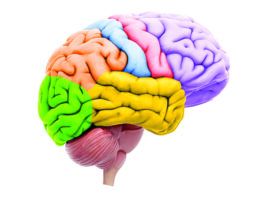Better Diet and Sleep Might Help Protect Your Brain
Poor sleep quality and diet may contribute to the early accumulation of the plaques associated with Alzheimer's disease, according to a new review. Part of the reason may involve cortisol, a hormone manufactured by the body that plays a role in regulating many core functions, including sleep.
Keep Active to Protect Your Brain
Two new studies provide important evidence of how physical activity might reduce the risk of Alzheimer's disease and other forms of cognitive decline. One study reported that participants who were most active showed the least decline - the equivalent of 10 years of mental aging. In a second study, the most active older adults were found to have the largest volume of gray matter in brain regions typically affected most by Alzheimer's.
Fish Linked to Less Alzheimers Disease in Those Most at Risk
If concerns about mercury in seafood have kept you from the possible brain benefits of consuming more fish, an unusual new study has good news. Researchers did find that older adults who ate more seafood had higher brain levels of mercury - but that toxin was not associated with any signs of dementia. On the other hand, people at greatest genetic risk for Alzheimer's who consumed the most seafood showed less evidence of the diseases damage in the brain.
New Evidence for Body and Brain Benefits of Walking
Science continues to prove Hippocrates right when he said, "Walking is man's best medicine." If youre beginning to lag on your New Year's resolutions, or that Fitbit you got for Christmas is gathering dust, a trio of recent studies provide incentive to get up off the couch and lace up those walking shoes.
Exercise and Your Brain: Should You Sweat It?
While observational studies have shown an association between physical activity and lower rates of mental decline, findings from randomized clinical trials have been mixed. And now the largest and longest such trial has reported surprisingly disappointing results.
Q. I keep seeing ads during the nightly news for a supplement containing a...
Q. I keep seeing ads during the nightly news for a supplement containing a protein originally found in jellyfish thats supposed to protect your memory. Could this really work?
Carbs Crucial to Early Humans Brains
Adherents of the so-called "Paleo diet," which emphasizes meat and attempts to replicate what humans ate in the Paleolithic period, may want to set down their steaks long enough to say thanks for starchy carbs.
New Dietary Approach Against Alzheimers
While both a Mediterranean-style diet and the DASH eating plan are associated with brain benefits, a hybrid dietary pattern that combines the best of both with the latest cognitive research may protect memory and thinking even better. A new study reports that the MIND (Mediterranean-DASH Intervention for Neurodegenerative Delay) diet was associated with a slower rate of cognitive decline-equivalent to 7.5 years of younger age. Those with the highest MIND diet scores were 53% less likely to develop Alzheimers disease than those with the lowest scores.
New Evidence of Brain Benefits from Following a Mediterranean-Style Diet
A newly published followup to findings from a study of the so-called Mediterranean diet adds to the evidence that such an eating pattern, especially when it includes nuts and olive oil, may help protect the aging brain. Results from a subgroup of the Spanish PREDIMED study showed that those assigned to a Mediterranean diet held steady in cognition while a control group declined. While previous observational studies have linked a traditional Mediterranean-style dietary pattern to cognitive protection, this is the first such evidence from a large randomized clinical trial.
Are You Keeping Your Brain in Shape?
Physical activity helps preserve mobility and motor skills as you age-and not just by keeping your muscles in shape. A new study suggests that activity also maintains mobility by protecting your brain. Even in people with signs of brain aging called white matter hyperintensities (WMH) associated with movement issues, being more active seemed to allow the brain to compensate.
































